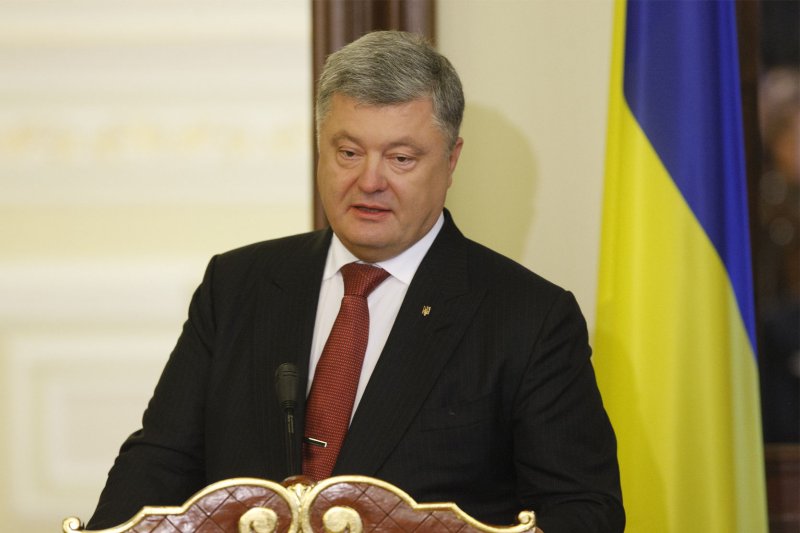Ukrainian President Petro Poroshenko says the geopolitical structure has changed with the completion of an association agreement with the European Union. Photo by Ivan Vakolenko/UPI |
License Photo
Sept. 1 (UPI) -- An association between the European Union and Ukraine, a country central to EU energy security, has entered into force, top officials at the EU said Friday.
"Determination is a virtue," European Commission President Jean-Claude Juncker said in a statement. "Today, in spite of all the challenges, we have made it."
Political upheaval that saw Kiev move closer to the European Union in late 2013 left a weakened Ukrainian economy in shambles. Russian energy company Gazprom cut natural gas supplies to Ukraine briefly in mid-2014 in response to unsettled debt.
Similar rows in 2006 and 2009 left downstream consumers in Europe without gas supplies for part of the winter season. Europe gets about a quarter of its gas needs met by Russia, though most of that runs through Soviet-era gas transit networks in Ukraine, a former Soviet republic.
Negotiations on the association agreement between the EU and Ukraine were signed in June 2014.
Since then, Russia has proposed various pipeline options to circumvent Ukrainian territory, namely a gas network planned for the southern European market through Turkey. Gazprom, meanwhile, aims to double the capacity of its twin Nord Stream pipeline through the Baltic Sea to Germany.
Europe, for its part, aims to draw natural gas from Azerbaijan's giant Shah Deniz offshore field, which would deliver resources through a network of pipelines dubbed the Southern Corridor by the end of the decade. Georgia, also a former Soviet republic, in 2014 opened a transport terminal for a pipeline tied to Shah Deniz and ratified an agreement in April to align its energy policies with the EU.
The association agreement includes a comprehensive free-trade arrangement, which promotes deep political and economic links between Europe and the former Soviet republic.
"There has been a historic change in the geographical structure of Ukrainian exports in favor of increasing its volume to the EU countries," Ukrainian President Petro Poroshenko said in a statement. "These are irreversible processes of integration of the Ukrainian economy into the EU market."
The Ukrainian government last month outlined a strategy to get about half of its electricity needs met by nuclear power, 24 percent from hydropower and the rest from thermal-electric power stations by 2035. Most of the nation's coal reserves are found in Donetsk, an industrial city at the heart of the Ukrainian separatist movement.















